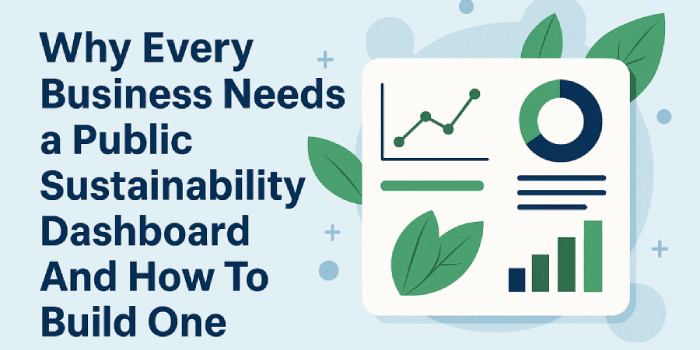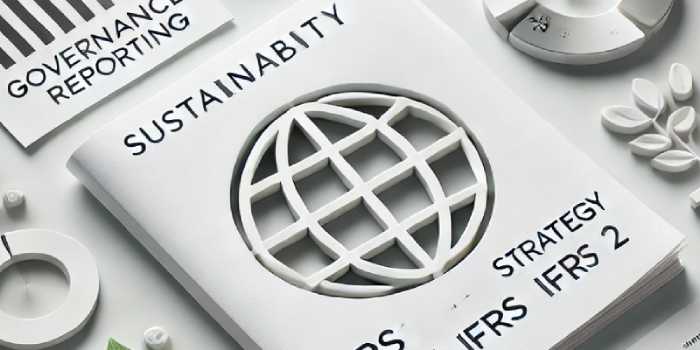The Importance of Stakeholder Sentiment in Sustainable Development Projects

Sustainable development has become a key priority for businesses, governments, and organizations worldwide. These projects aim to balance environmental, social, and economic considerations to ensure long-term benefits for communities and the planet.
However, achieving sustainable outcomes requires more than just good intentions—it demands active stakeholder engagement throughout the project lifecycle. This is how you quantify the social aspect of your ESG goals.
Below we explore why stakeholder engagement is crucial for the success of sustainable development projects and introduce FolioProjects as the optimal solution for managing stakeholder communication and collaboration effectively.
Table of Contents
- What is Stakeholder Engagement?
- Why is Stakeholder Engagement Important in Sustainable Development?
- Challenges in Managing Stakeholder Engagement
- Types of Stakeholders in Sustainable Development Projects
- Key Strategies for Effective Stakeholder Engagement
- Regulatory and Legal Aspects of Stakeholder Engagement
- How FolioProjects Simplifies Stakeholder Engagement
- Cost Implications of Stakeholder Engagement
- Measuring the Success of Stakeholder Engagement
- Real-World Examples of Stakeholder Engagement in Sustainable Development
- Conclusion
What is Stakeholder Engagement?
Stakeholder engagement refers to the process of involving individuals, groups, or organizations that are directly or indirectly affected by a project. Stakeholders may include investors, community members, government agencies, environmental groups, and employees. Engaging them means creating channels for communication, gathering feedback, and ensuring that their interests and concerns are acknowledged.
In the context of sustainable development, stakeholder engagement takes on added importance because these projects often have far-reaching social and environmental impacts. Sustainable development projects must balance diverse and sometimes competing interests to achieve success, making communication and collaboration vital.
Why is Stakeholder Engagement Important in Sustainable Development?
The primary goal of sustainable development is to create projects that benefit the environment, society, and the economy. To do this, it's essential to involve stakeholders who can provide insights into local concerns, potential environmental risks, or economic opportunities.
-
Informed Decision-Making: Stakeholders bring valuable perspectives that project teams may not have considered. Involving them early allows for more comprehensive planning and decision-making.
-
Risk Mitigation: Stakeholder engagement helps identify potential risks, such as opposition from community groups or regulatory challenges. Addressing these early can prevent costly delays or project derailment.
-
Building Trust and Transparency: When stakeholders feel heard and involved, they are more likely to support the project. This can be especially important in communities where trust between developers and locals is essential for success.
-
Meeting ESG Goals: Environmental, social, and governance (ESG) criteria are increasingly becoming a standard for project evaluation. Effective stakeholder engagement helps ensure that ESG goals are met by aligning project outcomes with stakeholder expectations.
Challenges in Managing Stakeholder Engagement
While essential, managing stakeholder engagement can be complex. Sustainable development projects often involve numerous stakeholders with varying priorities. Some of the challenges include:
- Diverse Interests: Different stakeholder groups may have conflicting goals or expectations.
- Communication Gaps: Misunderstandings or lack of communication can lead to mistrust and project delays.
- Time and Resource Constraints: Coordinating engagement activities requires time, effort, and resources, which can be challenging to manage alongside project execution.
- Geographic and Cultural Barriers: Sustainable development projects may span multiple regions, requiring sensitivity to local cultures, languages, and customs.
Types of Stakeholders in Sustainable Development Projects
Understanding the different types of stakeholders involved in a project is critical to managing engagement effectively. Stakeholders generally fall into two categories:
- Internal Stakeholders: These include employees, project sponsors, investors, and management teams directly involved in the project’s operations.
- External Stakeholders: These could be local communities, government regulators, environmental groups, customers, and NGOs who are affected by or have an interest in the project’s outcome.
Each type of stakeholder may have different priorities. For instance, internal stakeholders may focus on project efficiency and return on investment, while external stakeholders may prioritize environmental and social impacts. Tailoring engagement approaches to suit these varied perspectives is crucial for success.
Key Strategies for Effective Stakeholder Engagement
To overcome these challenges, project teams need to adopt best practices for effective stakeholder engagement:
-
Early and Continuous Engagement: Involve stakeholders from the beginning of the project and maintain ongoing communication throughout its lifecycle. This helps in building trust and avoiding surprises.
-
Clear Communication Channels: Establish transparent and accessible communication channels to ensure that stakeholders can voice concerns or provide feedback easily.
-
Tailored Engagement Plans: Customize your engagement strategy to fit the specific needs and expectations of different stakeholder groups. This could include one-on-one meetings, public forums, or digital platforms.
-
Use Technology: Digital tools like project management platforms can simplify the process of tracking stakeholder inputs, managing communications, and keeping everyone informed about project progress.
Regulatory and Legal Aspects of Stakeholder Engagement
In many regions, stakeholder engagement is not just a best practice—it's a legal requirement. Sustainable development projects, especially those that involve environmental impacts, must adhere to regulatory frameworks that mandate community involvement and public consultations.
Some global standards and frameworks to be aware of include:
- The Equator Principles: A risk management framework for determining, assessing, and managing environmental and social risks in projects, particularly in developing countries.
- Local Planning Laws: In many jurisdictions, large-scale projects must go through environmental impact assessments (EIAs) and public consultation processes.
By using tools like FolioProjects, which helps streamline and document communication with stakeholders, teams can more easily stay compliant with these regulations and meet legal requirements for transparency.
How FolioProjects Simplifies Stakeholder Engagement
Managing stakeholder engagement doesn’t have to be overwhelming, especially with the right tools. FolioProjects is a project portfolio management platform designed to streamline communication, collaboration, and decision-making across complex projects like those in sustainable development.
Here’s how FolioProjects can help:
-
Centralized Communication: FolioProjects enables project teams to create a single platform for all stakeholders, ensuring that everyone has access to the same information in real time.
-
Customizable Stakeholder Portfolios: With FolioProjects, you can create unique project portfolios tailored to specific stakeholder groups. This allows you to focus on the concerns most relevant to each audience.
-
Real-Time Sentiment Analysis: The integrated HueFlux system captures real-time sentiment data, helping teams understand how stakeholders feel about the project at any given time. This data is crucial for making adjustments based on feedback.
-
ESG Reporting and Compliance: As sustainability becomes more regulated, FolioProjects includes features that help ensure ESG compliance. The platform makes it easier to track sustainability metrics and communicate results with stakeholders.
-
Scalability: Whether you're managing a small community project or a multi-million-dollar development, FolioProjects scales with your needs, making it an ideal solution for all project sizes.
Cost Implications of Stakeholder Engagement
While stakeholder engagement may require an upfront investment in time and resources, it ultimately leads to cost savings by preventing project delays and reducing risks.
-
Avoiding Delays: Early engagement with regulators and local communities can help avoid project interruptions due to objections or permit issues.
-
Efficient Resource Allocation: By using FolioProjects to manage stakeholder communications and feedback, project teams can reduce the time and money spent on manual coordination tasks.
-
Long-Term Gains: Engaged stakeholders are more likely to support the project, resulting in smoother execution and higher long-term returns.
Measuring the Success of Stakeholder Engagement
To determine if your stakeholder engagement efforts are successful, it’s essential to track key performance indicators (KPIs). Some KPIs to consider include:
-
Stakeholder Satisfaction: Use surveys or sentiment analysis to gauge how satisfied stakeholders are with the level of engagement.
-
Project Approval Speed: Measure how quickly the project gains necessary permits or approvals as a result of proactive stakeholder communication.
-
Disputes or Objections: Track the number of formal complaints or legal challenges raised by stakeholders throughout the project.
With FolioProjects, tracking these KPIs is simplified through built-in reporting tools that provide real-time data on stakeholder sentiment and project progress.
Real-World Examples of Stakeholder Engagement in Sustainable Development
Many successful sustainable development projects owe their success to effective stakeholder engagement. From renewable energy installations to eco-friendly urban developments, stakeholders have played a critical role in shaping the outcomes. For instance, the development of wind farms in local communities often involves extensive discussions with residents to ensure minimal environmental disruption while maximizing economic benefits.
FolioProjects has already proven itself in sectors such as construction, energy, and environmental projects, where stakeholder engagement is crucial. The platform’s ability to keep everyone aligned and informed has made it the go-to solution for project teams looking to drive sustainable outcomes.
Conclusion
Stakeholder engagement is not just a "nice-to-have" for sustainable development projects—it is essential for their success. Effective engagement leads to better decision-making, risk mitigation, and community support, all of which are critical for achieving sustainability goals. However, managing multiple stakeholders can be challenging without the right tools.
FolioProjects offers a comprehensive solution for streamlining stakeholder engagement in sustainable development projects. With its advanced features like centralized communication, sentiment tracking, and ESG reporting, FolioProjects ensures that your projects stay on track and aligned with the needs of all stakeholders.
Invest in the future of sustainable development by choosing FolioProjects for your stakeholder engagement needs.

